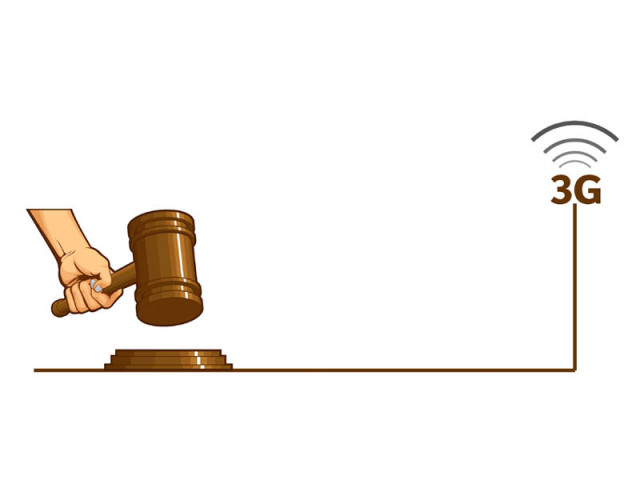Hopes for 3G auction rise with change in government
Industry expects PML-N to address issue of service suspension as well.

Industry expects PML-N to address issue of service suspension as well. DESIGN: CREATIVE COMMONS
“In their previous two tenures, the PML-N had always had business-friendly policies, which positively affected the corporate sector,” said Atifa Asghar, Director Corporate Communications and Responsibility of Telenor Pakistan. “We hope that their previous positive approach will continue in the future as well and business in general and telecom sector in particular will benefit hugely from their policies.”
The telecom sector contributed Rs133 billion or $1.3 billion to the national exchequer in fiscal year 2011-12, making it one of the highest tax-paying sectors. However, the multi-million-dollar sector has suffered financially from recent blackouts of mobile services and missed opportunities such as 3G auction, which has been delayed more than once.
“The two major issues encompassing the telecom sector that we would like the new government to address are introduction of 3G and network suspension,” Asghar said. “3G is the next natural step of evolution in the telecommunications industry.”
Pakistan is already one of the top performing telecoms markets in terms of reach, teledensity, call rates and product and service offerings, Asghar said. “With the advent of 3G, our country’s telecom performance will be further enhanced and strengthened and it will greatly enrich end-user experience,” she said.

Under the previous government, Pakistan Telecommunication Authority – the telecom regulator responsible for 3G licensing – failed thrice to hold the auction.
However, the PML-N claimed in its manifesto that it will move directly to 4G technology to ensure fast-track introduction of modern information and communication technology (ICT). It also said it will promote and facilitate the software industry to develop applications accessible through 4G and LTE networks.
The frequent mobile service blackout by the government is another major concern besetting the industry that loses millions every time cellphone services are suspended.
Network suspension is a growing challenge in the industry, according to Asghar. “Frequent suspensions during the past nine months have impacted the government and industry revenues, businesses and individual subscribers,” she said. “On the other hand, due to massive dependence on mobile phones, subscribers face huge inconveniences in carrying out daily personal and professional tasks.”
The industry is aware of the security situation in the country but the government should consult all the stakeholders and come up with a strategy that in the long term tackles the security concerns without adversely impacting the economy, the industry and the consumers, Asghar said.
For about five years, the Ministry of IT and Telecom has been without a minister while PTA has been going through a serious internal squabble among senior management recently. The new government will have to tackle this as well.
“The new government should appoint a minister who understands the issues facing the IT industry,” said Sikandar Naqi, Adviser to Zong CEO.
“The new government should have an effective regulator, which can successfully hold the much-delayed 3G auction.”
Published in The Express Tribune, May 16th, 2013.
Like Business on Facebook to stay informed and join in the conversation.


















COMMENTS
Comments are moderated and generally will be posted if they are on-topic and not abusive.
For more information, please see our Comments FAQ